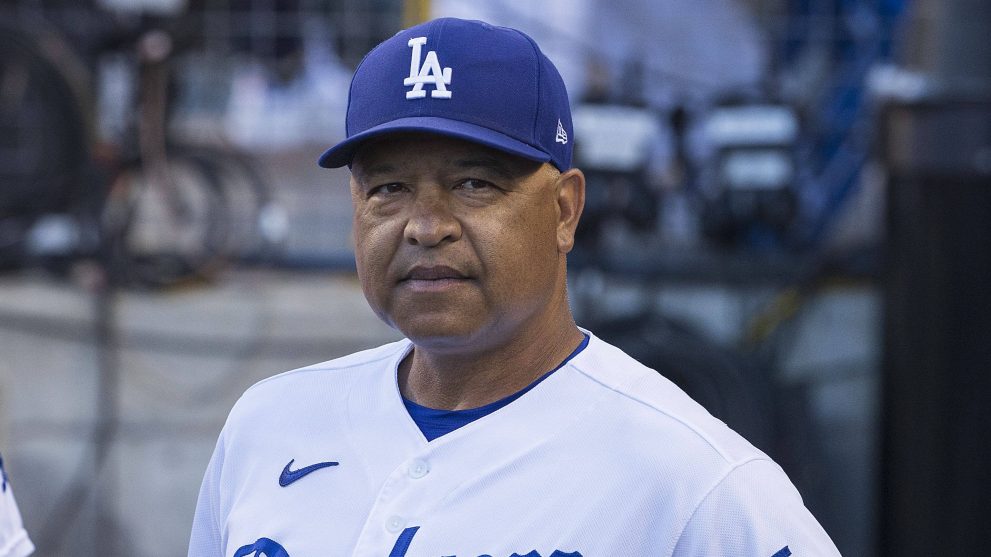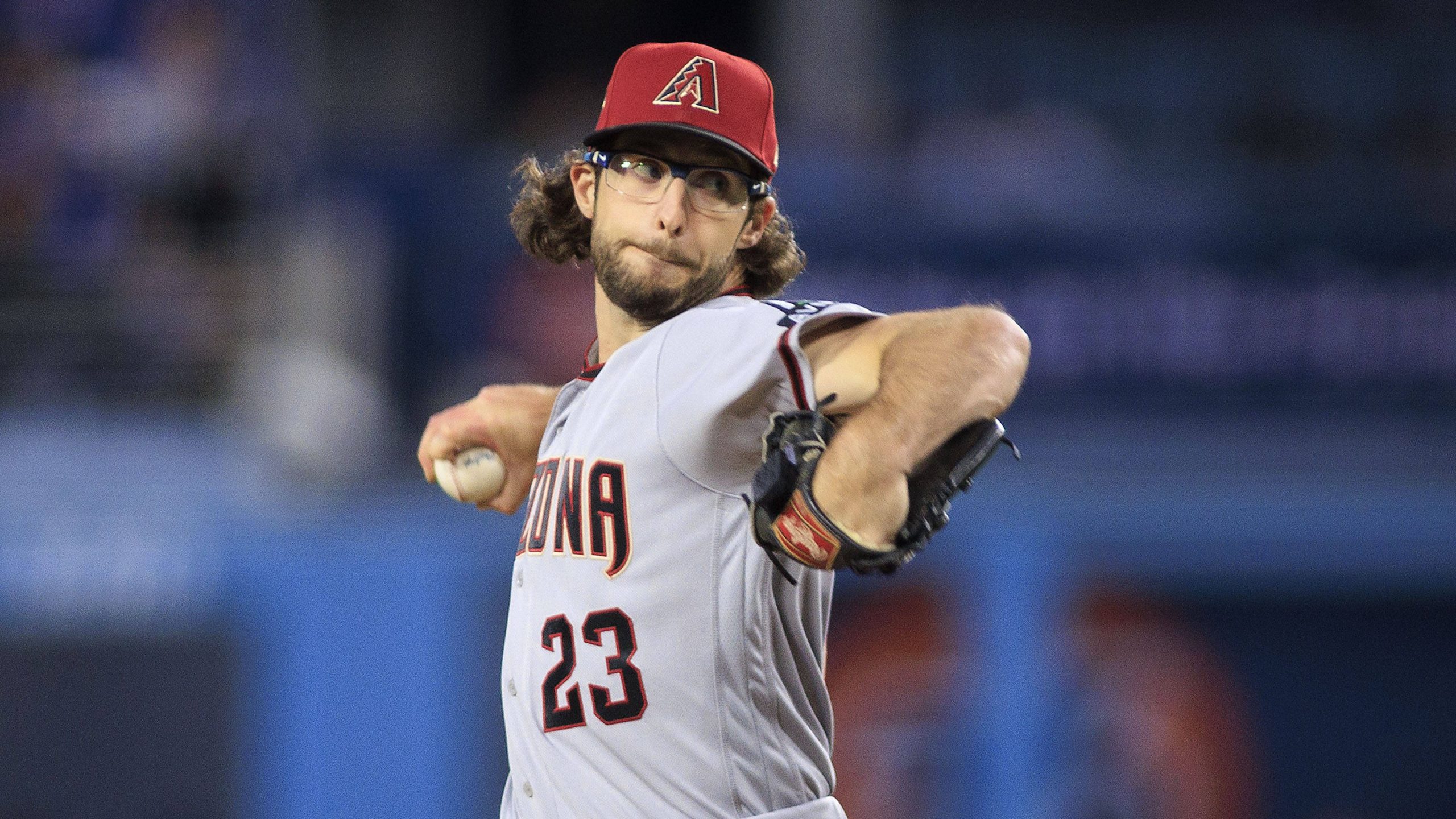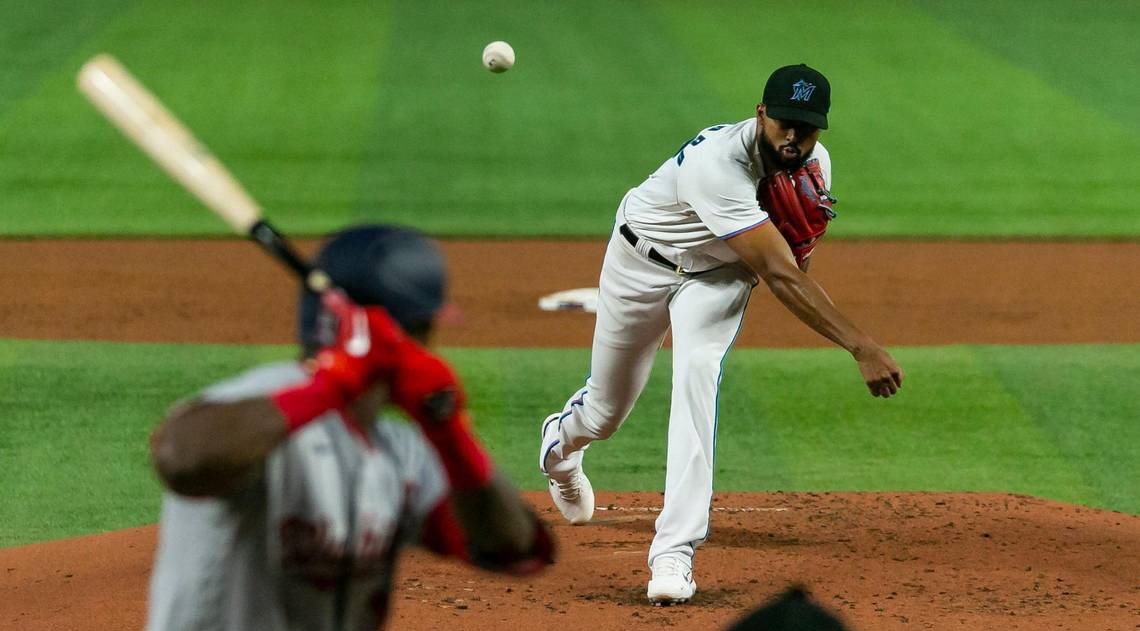A managerial press conference is not usually a place to ponder life’s more existential questions.
But most managers aren’t overseeing a team in the midst of one of the most successful regular season runs of all-time. And thus the query to Los Angeles Dodgers manager Dave Roberts Wednesday— is it fair that the success of a team dominant for so many 162-game stretches is defined over a month-long sprint involving a field of teams far less successful over the course of the regular season? — went a whole lot deeper than the status of the players on the injured list or the candidates to be recalled once rosters expand in September.
“I don’t know if existential’s the right word,” Roberts said before the Dodgers faced the New York Mets. “You kind of look at it a lot of different ways. I think revenue (and) money drives this game. But if you’re looking at the mechanics of a 162(-game season) and (then) having a sprint where anything can happen doesn’t make a whole lot of sense.”
By any measure, few teams have ever played as well over repeated 162-game marathons as the recent iterations of the Dodgers. With more than a month left in the regular season, Los Angeles (90-39) could go winless the rest of the way and still finish with at least 90 wins for the ninth straight full season.
And the Dodgers don’t have to play .500 ball down the stretch to become the first team in history to win at least 106 games in three consecutive full seasons. Los Angeles won 106 games apiece in 2019 and in 2021. The St. Louis Cardinals came closest to putting together three straight 106-win seasons, when they went 106-48 in 1942 and 105-49 in 1943 and 1944.
Dave Roberts on the return of Clayton Kershaw, Mookie Betts' performance this season and more. #KershawDay pic.twitter.com/YfC00hCpQ9
— SportsNet LA (@SportsNetLA) September 1, 2022
The Dodgers’ potential run of seasons with at least 106 wins comes with the caveat that it didn’t happen over three consecutive years due to the pandemic that shortened the 2020 season to 60 games. But the Dodgers were on an even better pace in 2020 — their 43-17 record extrapolated to 116 wins over a 162-game schedule, which would have tied the 1906 Chicago Cubs and 2001 Seattle Mariners for the most victories all-time — and won the World Series for the first time since 1988.
And that, of course, is the somewhat ironic kicker. The Dodgers’ lone championship in their historic run came after the briefest regular season since 1878, when the six teams in the National League played 60 games. And they won it by emerging from the largest playoff field of all-time — a one-time-only 16-team tournament installed to increase revenue following the abbreviated season.
The randomness of the tournament is usually less kind to teams such as the Dodgers, who were only the seventh team in the wild card era (since 1995) to win the World Series after finishing the regular season with at least a share of the best record in baseball. On average, the World Series champion since 1995 has finished with the fifth-best record in the regular season.
“Still got to beat the best team to be the champion,” said Dodgers third baseman Justin Turner, who has been with the team for 10 seasons and is its longest-tenured position player. “Every team’s got to go through it to win a championship. So that’s how we look at it.”
Last season, the Dodgers’ hopes of a repeat ended with an NL Championship Series loss to the Braves, who finished the season with the 12th-best record — worse than the Toronto Blue Jays and Seattle Mariners, each of whom missed the playoffs in the AL — before becoming the eighth different team in the last eight seasons to win the World Series.
The Dodgers are both the betting and analytical favorites to snap that pattern this fall. They are +350 favorites to win the World Series at DraftKings as of today, well ahead of the Houston Astros (+425). Baseball Reference gives Los Angeles a 21.8 percent chance of winning it all, slightly ahead of the New York Yankees (20.6 percent).
The path to a championship is equal parts more and less treacherous for the Dodgers this season. The playoff field expanded to 12 teams — three division champs and three wild cards in each league — but first-round byes will be awarded to the top two division winners.
The Dodgers are 15 1/2 games ahead of the Cardinals, the NL division leader with the worst record, so their path is sure to start with a best-of-five Division Series instead of a best-of-three wild card series. Los Angeles will also have the luxury of setting up its rotation for the Division Series while whomever advances out of the wild card series will have to go with a mid-rotation type starting in at least Game 1 opener. The Division Series is scheduled to start Oct. 11, four days after the start of the wild card series.
“Of course, the more teams involved in a postseason, in a pennant race, makes sense and is great for fans,” Roberts said. “So whatever everyone’s in for, or the majority (is in for), I’m in for. We don’t make the schedule or the structure, so we play by the rules and we’re going to find a way to try to win this thing.”
Not winning it all won’t diminish the scope of the Dodgers’ achievements over the last eight years. But while no one outside of those in the treacherous airs of the hot take ecosystem thinks any less of the Dodgers’ achievement at the end of a hopefully-never-to-be-repeated season, the 2020 title also didn’t deliver the exclamation point that a championship to conclude a 100-plus win season would have provided.
And the Dodgers understand, as much or more than anyone else, the need for exclamation point endings, no matter how vulnerable the sprint of the tournament can make those who thrive in the 162-game marathon.
“You can’t take away from what teams do in the regular season,” Turner said. “I think that’s special. But every team meets in spring training on day one and the goal is to win a championship. So that’s the ultimate goal. And if you don’t check that box, obviously, it’s going to be disappointing no matter what.”








